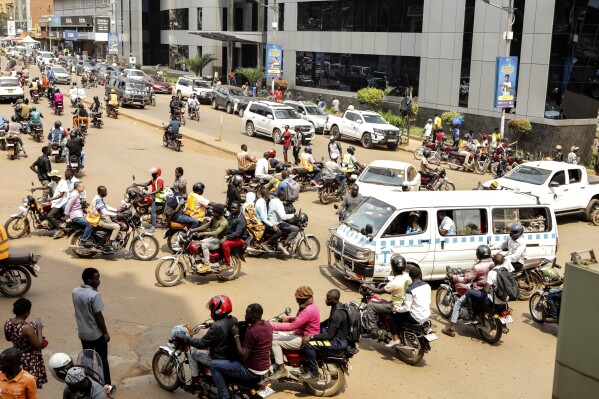By Ambassador Henry Mayiga
The Yoweri Museveni administration has, since 1986, commendably changed the trajectory of many sectors in the country; one of them is the transport sector. Before that, public transport dominated the sector leaving less room for the privateers. In order to reduce public expenditure and to simultaneously remove government from expensively running businesses, the administration repudiated the earlier its earlier involvement in transportation.
The rise and rise of the boda-boda industry, initially started as a means of transport on the Uganda-Kenya border during the insecurities of the 1970s and 1080s. Dubbed “boda-boda,” the industry is traced back to riders who would shout “border-border” at potential customers. Astoundingly, the term boda-boda has made it into the Oxford Advanced Learners’ Dictionary.
This industry’s boda-bodas, thanks to the liberal and unbigoted economic policies of this administration, have burgeoned to over 350,000 in Kampala alone according to the 2024 statistics; the unknown numbers in the entire country notwithstanding.
And in many ways boda-bodas are vitally critical in Uganda; and if the industry is regulated, that could further buttress it’s usage as follows:
First, they would foster affordability, movement speed, convenience and greatly be a supplemental means of transportation to get around throughout the country. This would be true most especially in rural areas where other options are particularly and grossly limited thereby stymieing communication between localities.
They are, for instance, critical to brisk transportation of the sick and expectant mothers to medical facilities whence urgent attention is to be obtained.
Secondly, once regulated, the service would become a more formidable source of income to many young folks and resultantly a vital source of employment to would be idlers; which would forbear the ramifications of the saying that “idle hands are the devil’s workshop.” The country would, relatedly, avoid lawlessness stemming from the idle.
Thirdly, they are a good source of social capital hence they robustly compare with others that are harder to mobilize in the short term. The better angels in boda-boda riders would propitiously prevail with a robust regulatory regime that ensures that they work together in a group to effectively achieve their common goals and objectives.
Fourthly, boda-boda operators would more responsibly pay taxes hence their incremental additions to national revenue would be a much desired plus since the industry is ever burgeoning; which bloom and prospect would feed into the wider economic national goals and objectives.
Fifthly, boda-bodas easily navigate traffic jams, access remote locations where other transportation options can’t easily reach thus, once regulated, they would enhance connectivity with hard-to-reach localities as well as emphasizing the aspect of timeliness.
Those pluses notwithstanding, the unregulated industry has borne the below minuses which in a sense stymie social-economic progress.
Arguably the below minuses retard progress:
First, there’s need for the traffic police to strictly enforce traffic rules and regulations to the letter; there are many instances, most especially at traffic lights, where the traffic police just watch riders breaking the law and yet they are quick to penalize non boda-boda motorists. When engaged, the traffic police personnel will tell you that bodas belong to “big people!” Elsewhere, many riders are clueless about the “one-way road” provision; that’s violated with impunity.
Their disposition is many times punctuated by use of foul language or violent kicking of people’s cars where they want to illegally force right of way. They have sometimes, as mobilized groups, burnt cars that are involved in accidents with riders.
Secondly, as earlier mooted by several voices, riders should never be allowed into the central business districts; they ought to be confined in the suburbs of cities most especially in Kampala. They have always added to the endemic problem of congestion in Kampala’s central city business district.
Thirdly boda-bodas should be registered in those suburbs or divisions and they should never crisscross them because doing so just insults the already festering wound of traffic jams and criminality which duo is ever on the rise.
Boda-boda stages should be clearly marked, riders should have name tags and numbers displayed for identification purposes.
Fourthly, Impromptu boda-boda stages should never be tolerated anywhere. All stages should be known to all layers of local authority namely, LCs, security and others to nip criminality in the bud.
Lastly, many of the brutal crimes throughout the country have been carried out by either boda-boda riders or those they carry; from murders, robberies to pickpockets; riders have been accomplices in recent times.








